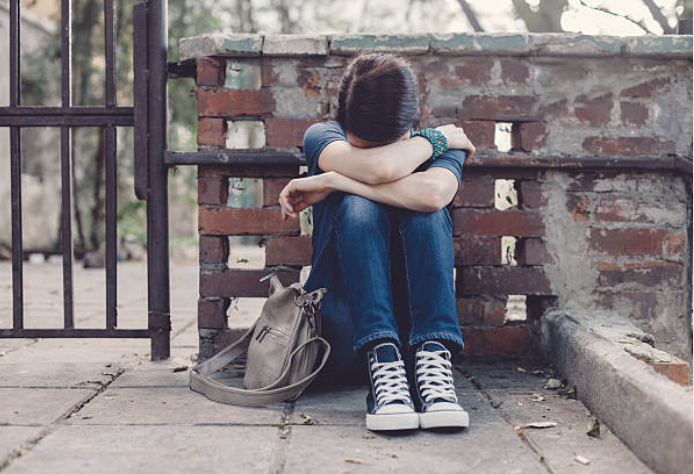Understanding Psychological Deprivation in Youth
By: Sanjana Dash

In many parts of the world, crime rates are rising, especially among youth. Young people commit most of these crimes, be it drug abuse, murder, rape, or cybercrime. Have you ever wondered what is driving them to such an extent? No one is born bad; they do bad things to respond to their inner turmoil. In today’s day and age, we are witnessing increased psychological deprivation in youth. However, knowing the problem is not enough; we need to deal with it effectively
What is Psychological Deprivation?
Individuals deprived of the necessary stimuli for fostering their emotional, social, and intellectual growth suffer from psychological deprivation.
Furthermore, it leads to emotional disturbances, delayed mental development, and late puberty in children.
How does it affect the youth?
Being a youth is no easy task. Admit it! We’ve all been through this phase of our life. All the highs and lows that we face during our youth days primarily shapes us as an individual. It reflects what and how we become in the future. Generation Z (Gen Z) is the largest and most recent generation of youth who has witnessed significant technological and emotional changes. From cassettes to music apps, from landlines to touch screen mobiles, from going to schools to online education, we have seen the world progress tremendously.
However, as the famous saying from Spiderman goes, “with great power comes great responsibility.” There is so much happening in our physical world that somewhere our emotional wellbeing is affected and most definitely neglected in the process. Where have we gone wrong?
Who is responsible?
1) Parents– It all comes down to our basics. As parents, we are solely responsible for the upbringing of our children. The period between 10-25 is the most sensitive phase of youth where you can either make it or break it. You must spend enough time with your children and understand what is going on. And for this, you need to be their friend first. We don’t realise the amount of emotional imbalance that they go through, so it is essential to make an effort to get to know them better and help them get through this phase.
It would be best if you taught them the difference between right and wrong, legal and illegal. Because if you won’t, no one else will. Act now, before it’s too late.
2) Social Media– It is no surprise that social media has taken over the world, but its constant use has proven to be a bane for the youth. The reality is always hidden on social media. The majority of what we see on these platforms is hyped and glamorised. As a result, we compare our lives to others and sulk. Our daily schedule starts with browsing our online feed, and we continue using it until we go to bed. It further takes a toll on our minds giving us anxiety and depression.

Image credit- https://bit.ly/36hoiSv
The Effects of Psychological Deprivation in Youth
There are several effects of psychological deprivation in youth:
1) Substance abuse and addiction– Young people turn to drugs to escape reality to cope with mental health conditions like depression, anxiety, social awkwardness, etc. As a result, they feel the urge to gain pleasure from these substances, eventually leading to addiction.
2) Anxiety disorders– Unpleasant thoughts, fears, and tension fog the mind frequently, resulting in excessive sweating, irregular heartbeats, etc.
3) Personality disorders– When individuals lose their sense of identity, they cannot tell right from wrong. Their actions and thoughts differ from what society expects. Due to this, they tend to have rigid thinking and uncontrolled behaviour, which prevents them from having healthy relationships.
4) Poor sleep schedule– Our minds are constantly flooded with negative thoughts, work pressures, and extensive phone usage, leading to poor sleep, irritation, and a lack of concentration. Without proper rest, the mind will not function properly, thus resulting in deprivation of mental health.

Image credit- https://bit.ly/3ul3Fwr
Furthermore, psychological deprivation in youth can lead to personal distress, emotional and physical incapacity, isolation and abuse, risky behaviour (alcohol and drug addiction, sexual abuse), and premature death.
Treatment for psychological deprivation in youth:
The HEADS approach works best in such cases.
H– Home
E-Education, employment, eating, exercise
A– Activities
D– Drugs
S– Sexuality, safety, suicide, and depression.
The HEADS Approach
H–Home– One’s home is the most fundamental and primary source. There is often a connection between the child’s home environment and their behaviour, and therefore, it is vital to find out about the youngster’s home environment.
E–Education/Employment– Following the home environment, the education and employment sectors of the youth play a crucial role in influencing their behaviour. Peer pressure (toxic friend circle), undue stress of school and work life, and problems with teachers and bosses, negatively impact the youngster’s mental health.
PRIMARY TO SECONDARY SOURCES
Eating– A lot can be said about the eating habits of today’s youth. Poor eating habits lead to obsessive weight gain or loss, resulting in low immunity, which further invites long-term health problems.

Image credit- https://bit.ly/3Jxi8eq
Exercise– In this digitalised age, the youth has forgotten that there is a world outside their screens. Lack of proper physical activity and unhealthy food consumption contributes to a sick body and mind.
A– Activities– Getting an insight into their day-to-day activities like what they enjoy doing or whom they hang out with is equally necessary.
D–Drugs– Look out for signs that indicate usage of drugs. If you see any such symptoms, take immediate action. For Examples: noticing bloodshot eyes, sudden weight loss, unkempt appearance, risky behaviours, and uncontrolled fits of rage.
S–Sexuality– This is a more sensitive topic of discussion. Find out if they have had early sexual experiences, multiple partners, unsafe sex, or experienced sexual abuse. Most importantly, discuss their sexual orientation (if they are gay, bisexual, or lesbian) and help them through their journey to being comfortable and proud of their sexual orientation.
Safety– Enquire about their home, work, and school environment. Ask them if they are facing or have faced any violence, abuse, or bullying. In these scenarios, they may either be victims or offenders.
Suicide and Depression- Pay extra attention to their words and actions. Observe whether they seem hopeless or suicidal.

Image credit- https://bit.ly/3Ls0uu7
Conclusion
Our future is on the line, while the present is constantly fighting for a sense of wellbeing. The psychological deprivation of youth is a worrying trend that must be addressed quickly and effectively. Our responsibility is to ensure that our youth receive proper guidance and support during this phase of their lives. Therefore, we must seek professional help when needed and try to change our methods of dealing with young people. We can, and we will make this world a better place for our youth together.
References– https://bit.ly/3LbVh9C, https://bit.ly/36pDxsv
Tags: Mental Health, Personality Development, Psychology, Youth Development, youth mental health,









